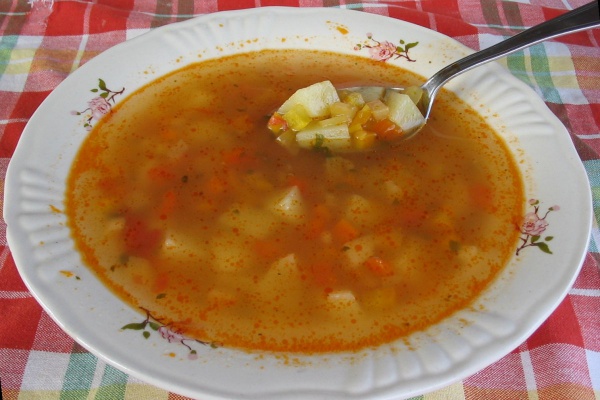Facts About Romanian cuisine
Romanian cuisine is a delightful blend of flavors and traditions, shaped by the diverse cultures it has encountered over the centuries. While it has absorbed influences from Turkish, Austrian, German, Greek, Hungarian, and Slavic cuisines, it still maintains a distinct Romanian character.
One of the highlights of Romanian cuisine is its variety of soups, known as "ciorbă" which are often characterized by their sour taste. Another staple is "țuică" a potent plum brandy that many Romanians favor. Historical figures such as Costache Negruzzi and Mihail Kogălniceanu have documented early Romanian cooking, offering a glimpse into the culinary past. Cheese has always been a significant part of the Romanian diet, with the ancient Dacians also being known for their wine and beer production. The introduction of maize and potatoes to Europe had a profound impact on Romanian food, contributing to a population boom.
Romanian dishes encompass a wide array of options, from meatballs and musacá to sarmale (stuffed cabbage rolls) and an assortment of soups inspired by Turkish cuisine. While pork is the most commonly consumed meat, beef, lamb, and fish are also popular. During Christmas, traditional foods such as cârnați (sausages), lebăr (liver sausage), and sângerete (blood sausage) are prepared from a sacrificed pig. Easter is marked by lamb dishes like drob de miel (lamb haggis) and borș de miel (lamb soup). Romanian pancakes, known as "clătite" can be filled with both savory and sweet fillings, making them a versatile treat.
Wine holds a special place in Romanian culture, with a tradition spanning over three thousand years. The country produces a variety of both domestic and international wines. Romanian cheeses, such as brânză de burduf and telemea, made from cow's or sheep's milk, are integral to many dishes. For those with a sweet tooth, Romanian desserts like cozonac (sweet bread) and papanăși (fried doughnuts) provide unique and delicious flavors.
Traditional Romanian drinks include horincă (a potent fruit brandy), țuică, afinată (blueberry liqueur), and sana (a type of fermented milk). The rich diversity of Romanian cuisine, with its wide range of dishes and beverages, is a testament to the country’s historical and cultural influences.

 Bulgaria
Bulgaria